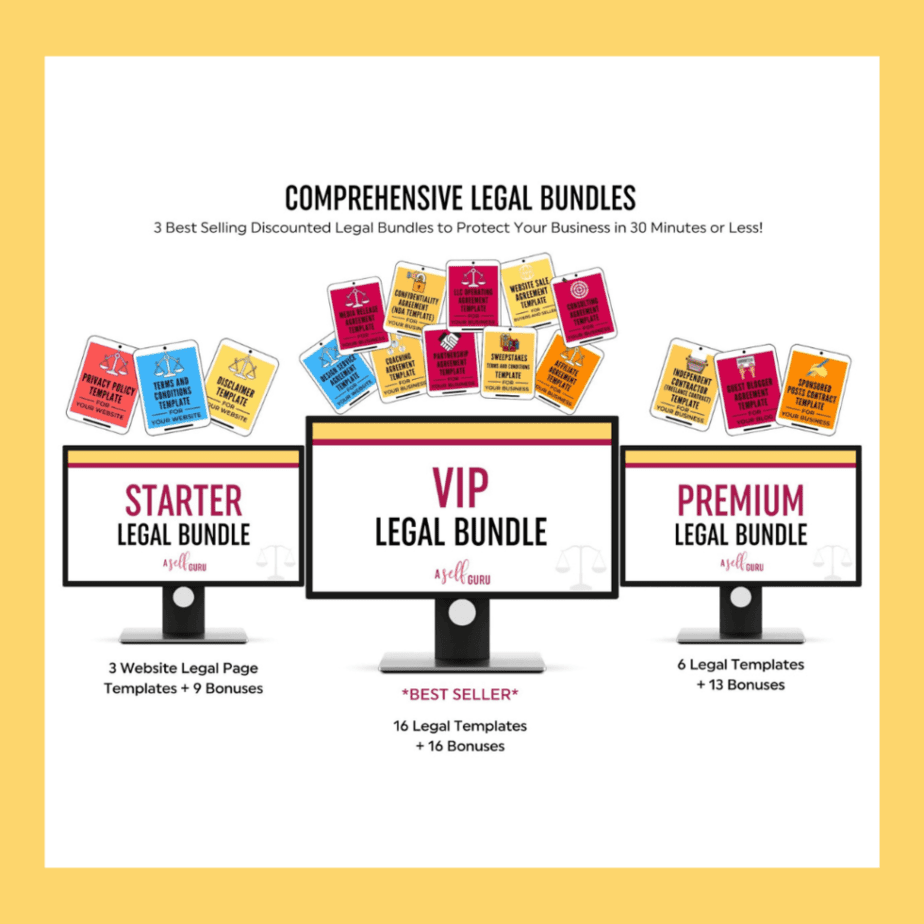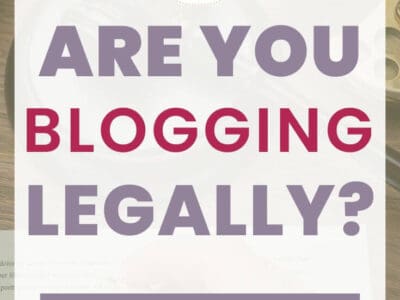If you are a business owner, you must know how to report identity theft. Identity theft can devastate your business, so you must know what to do if it happens.
This blog post will discuss identity theft, how it can affect you and your business, and what steps you need to take if you are a victim. There will also be tips on protecting yourself from identity theft.
Table of Contents
What is Identity Theft?
Identity theft has affected lots of people and is quite common.
Identity theft occurs when someone uses your information, such as your address, credit card number, and bank account information, without permission to commit fraud or other crimes.
Identity theft can ruin your credit, cost you money, create reputation damage for your business, and cause stress.
There can also be legal consequences if you do not get a hold of it immediately. As a victim and business owner myself, I can tell you it requires lots of persistence, follow-ups, and not taking no for an answer.
Related Blog Post: Privacy laws you need to ensure compliance with as a business owner
How Can Identity Theft Affect You?
If you are a victim of identity theft, it can have a major impact on your life.
Your credit score can also drop significantly, and obtaining a home or business financing loans can prove difficult.
Secondly, you may have to face debt collectors wanting to get paid for the fraudulent charges on your accounts.
In addition, identity theft can lead to legal problems if the thief commits crimes in your name. It is also highly time-consuming to resolve, so be sure you can allocate time, take good notes, and have excellent record keeping.
2022 Identity Theft Statistics
Here are a few identity theft statistics that have been provided by the National Council on Identity Theft Protection in one year alone:
- Identity theft has cost Americans $5.8 in losses.
- Of the 5.7M million reports the Federal Trade Commission received, 1.4M were consumer identity theft reports.
- Cases have gone up 70% from the prior year.
- There is a new identity theft case every 22 seconds.
9 Important Tips to Protect Yourself from Identity Theft
Protecting your business from identity theft is essential, and the following tips are recommended regularly. Think of this as a standard operating procedure for your business and personal life.
- Be sure to sign up for monitoring services that provide an id theft report and are currently reporting identity theft. These services include Lifelock, IdentityGuard, Zander, and even Identity Force. If you sign up for the provider and they uncover fraud, you will be covered up to a certain amount under their policy. You will need to check each service to find more details.
- Obtain a free credit report at AnnualCreditReport.com. You can sign in and see a credit report covering all three major credit bureaus: Experian, Equifax, and Transunion. When you obtain these reports, check all your open credit accounts, financial institutions, credit card companies, and other accounts. This is a huge red flag if you notice any false information, unauthorized charges, or new credit accounts that have recently been opened. This is especially particular when you are running a business. Check for unknown companies that have been pulling credit or even making inquiries they did not discuss with you beforehand. Always keep an active eye on this and monitor accordingly. Another significant indicator is your actual credit score at all the credit reporting agencies. If they are not similar scores, something could be off.
- Monitor your personal and business bank statements and any bank account you have associated with yourself.
- Stay on guard when you go to any office or provider asking you for your social security number or other sensitive information. Only provide it if it is necessary. In addition, make sure it’s not on a physical piece of paper, as that can get into the wrong hands. Specifically for doctor’s offices, this can lead to medical identity theft.
- Keep an active check on the number of spam calls, strange emails, or text messages you receive. These types of notifications can sometimes trigger fraud or other information that might be stolen. You can also add your number to the Do Not Call list for free to prevent a percentage of suspicious calls from coming in. Typically cell phone providers now have a free spam phone number filter which will automatically prevent those calls from being answered.
- Check your physical mail daily and keep an eye on suspicious accounts with charges. This can help you be proactive and immediately call the company to file an appeal or dispute. If there are paper statements with personal information like your social security number or credit card, be sure to shred them if you plan to dispose of them.
- A credit freeze can also be quite beneficial as no one can open new credit under your identity. This can prevent from additional fraud and accounts being open.
- Another overlooked item is that your business computer can be a significant way hackers can obtain your personal information. Be sure to have reputable antivirus software on your machine and run the scan and live updates frequently to remove threats. This ties into ensuring you are not keeping the same passwords for all your banks and other sensitive accounts.
- Regarding your business computers and cell phones, make sure to do a clean format if you donate or dispose of them. It is a massive vulnerability if you do not as the recipient of that hardware could accidentally have it leak into the wrong hands.
What Steps Can I Take if I Am a Victim of Identity Theft?
Suppose you have had the unfortunate outcome of being a victim of identity theft. In that case, you will want to make sure to take the following steps to start your recovery plan and not let identity thieves get away with your personal information.
- If you use an identity theft provider, reach out to them to keep them apprised of your findings. The provider can help you develop a recovery plan to restore credit and remove any fraud.
- You must go to each credit bureau’s website and place an extended fraud alert on your credit reports. These fraud alerts will notify the credit reporting agency of potential identity theft and not allow new accounts without your consent. Also, download a copy of your free credit reports to show them to the appropriate law enforcement agencies if necessary.
- File a police report by contacting your local police office. The agency may take some time, so follow up and get an electronic or mailed copy.
- Create an account with IdentityTheft.gov, which is a Federal Trade Commission website. Be thorough in filling out your details so you can reference them in the future. Once you have completed the process, you will receive an FTC identity theft report. Make sure to download this and keep it for your records as well.
- Contact all your business vendors and any relationships, such as credit card companies and banks, about identity theft so they can keep an eye on any nefarious activity. You are being proactive in mitigating any potential damage to your business.
- Contact the creditor where the fraud has occurred. Make sure you talk to their fraud department and file an appeal or a dispute for the account in question. They may ask you for the identity theft report, police report, credit report, and other supporting documentation to show you have a strong case to get these charges reversed and removed. If you have been receiving bills from the creditor in question, keep those as proof for case submission.
- One thing to consider is that the process is tedious, and you must be willing to follow up every week with the creditor where the fraud has occurred and have a fluid conversation with your identity theft provider if you have one. Document your discussions and record the employee’s name and other information to make a point of reference.
- If you receive confirmation that the fraud has been removed from your credit reports, you will need to pull reports regularly for up to six months to see if your scores have moved back to their original level. Keep a very close eye on this.
How to Report Identity Theft to the FTC
The FTC is the primary federal agency responsible for handling complaints about identity theft.
When you file a complaint with the FTC, they will create a “consumer complaint” file that can be used by law enforcement agencies in their investigations. The FTC also uses consumer complaints to identify patterns of fraud and develop cases against companies or individuals engaged in deceptive or unfair business practices.
You can file a complaint online or by calling 1-877-ID-THEFT (1-877-438-4338).
When you file a complaint, you’ll need to provide the following information:
– Your name, address, and contact information
– A detailed description of the identity theft incident, including how you believe your personal information was compromised
– Any documentation or evidence you have related to the incident (e.g., fraudulent bills or statements, email correspondence)
After you’ve filed a complaint with the FTC, you should also contact your local law enforcement agency and file a report. This will help create a paper trail that can be useful if you need to take legal action against the person or persons responsible for the identity theft.
Finally, be sure to take steps to protect your business from future identity theft incidents by implementing strong security measures listed above.
By taking these steps, you can help safeguard your business against identity theft and other types of fraud.
How to Report Identity Theft to the Credit Bureaus
If you think you’ve been a victim of identity theft, it’s important to act quickly to minimize the damage and protect your information.
One of the first steps you should take is to report the crime to the credit bureaus. Reporting identity theft to the credit bureaus can help stop the thief from opening new accounts in your name and making charges on your existing accounts. It can also help preserve your credit history and recover any lost funds.
Here’s how to report identity theft to the credit bureaus:
1. Contact the fraud department of one of the three major credit bureaus: Experian, Equifax, or TransUnion.
2. Provide them with proof of your identity, such as a driver’s license, social security number, or birth certificate.
3. Explain that you’ve been a victim of identity theft and provide any supporting documentation you have, such as a police report.
4. Ask the credit bureau to place a fraud alert on your account. This will notify creditors that they should take extra steps to verify your identity before extending credit in your name.
5. Request that the credit bureau remove any fraudulent information from your credit report.
6. Keep copies of everything for your records and follow up with the credit bureau periodically to make sure that all the fraudulent information has been removed from your report.
Related Video: ADA Website Compliance has become a big legal issue in the last few years where tons of lawsuits are being filed against business websites for discrimination against people with disabilities. ADA stands for Americans with Disabilities Act and if you have a website then you need to ensure compliance with it to avoid any litigation. Watch the video below to learn more!
How to Report Identity Theft to the Police
If you think you’re a victim of identity theft, the first thing you should do is contact your local police department and file a report.
Be sure to include as much information as possible, such as when you believe the theft occurred, how it occurred (if you know), and what information was stolen (e.g., your name, Social Security number, credit card number, etc.).
Filing a police report will help create a paper trail that can be helpful in proving your case to creditors, banks, and other businesses. It can also be helpful if you need to file an insurance claim.
Final Thoughts on How to Report Identity Theft
Business owners have enough on their plate without worrying about identity theft, but as this guide has hopefully shown, there are steps you can take to both prevent and recover from this type of crime. Now you know how to report identity theft.
Stay vigilant in how you protect your personal information, review your credit reports regularly, and report any suspicious activity to the appropriate channels immediately. If you become a victim of identity theft, don’t despair–there are ways to get your life back on track. And finally, always remember that an ounce of prevention is worth a pound of cure.
Related Thoughts on How to Report Identity Theft
Aside from reporting identity theft, there are other legal issues you need to worry about in your business such as what legal pages you must have on your website, how to make your website ADA compliant, or how to make sure your business is compliant with the CCPA, and more.
Check out this legal tips page to learn more!
Below are some more helpful blog posts you should read:
- Lawyer’s Guide to ADA Website Compliance – Use this checklist
- 6 Essential Business Contracts Every Entrepreneur Needs and Why
- CCPA Compliance for Your Website
- Hosting a giveaway? Learn all about Sweepstakes Rules and grab your Sweepstakes Terms and Conditions template here
- Are you accepting guest posts on your website? Learn how to protect yourself!
- What other legal contracts should you have? Check these 16 DIY Legal Templates
- Want to use someone’s photos, testimonials, or videos legally? You need this Media Release Agreement.
- Want to start your own affiliate program or already have one? Protect yourself with an Affiliate Agreement
- Are you a coach offering 1:1 or group coaching? Learn about the 3 essential legal contracts you need as a coach!
- 50 Entrepreneurs Like You Reveal Why Free Legal Templates DON’T Protect Your Online Business
- Protect Your Business Secrets With a Confidentiality Agreement
- Looking to hire a freelancer or provide freelance services of your own? This is the Freelance Contract You Need!
- Everything You Need to Know About Blog Disclosures and Disclaimers (with Examples)
Don’t forget to join my awesome Facebook group with over 7,000 incredible entrepreneurs. You’ll be welcomed into this supportive group with bloggers, business owners, and go-getters. Plus, you’ll get helpful legal, blogging, and business tips for free.
COMMENT BELOW AND LET US KNOW WHETHER YOU HAVE QUESTIONS.
About the Guest Writer:
Ammar has started several online businesses and is a blogger who loves providing quality content to help others. He is involved with affiliate marketing, domain names, NFTs, and cryptocurrencies. You can learn more about these areas and business in general at AmmarRangwala.com.




















Hello, Ammar ,
Identity theft is a big challenge in this digital world. We need to be alert and cautious about it. You have shared some great and helpful tips to protect yourself from identity theft. Thanks for sharing.
Regards,
Vishwajeet Kumar
Thank you for your feedback! Glad you enjoyed this guest post by Ammar!
Appreciate the kind words Vishwajeet. I recommend these steps for all business owners.
Thank you for a great article for me. The content is very clear and detailed
You are welcome, Lien. Glad it helped!
Thank you Amira for this important article! In todays age this is a thing we should all take the time to focus on. Greetings
Yes, you are so right. Thank you, Anike!
identity theft sounds scary
yes it is!
Oh, perfect.Thank you I’ll definitely use this!!